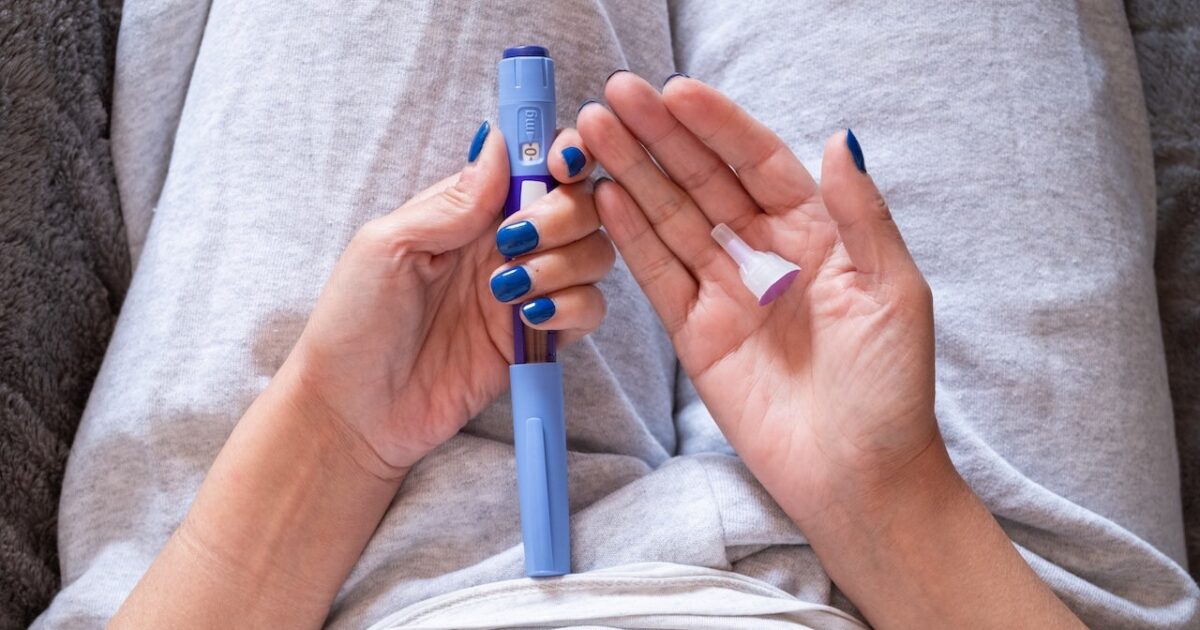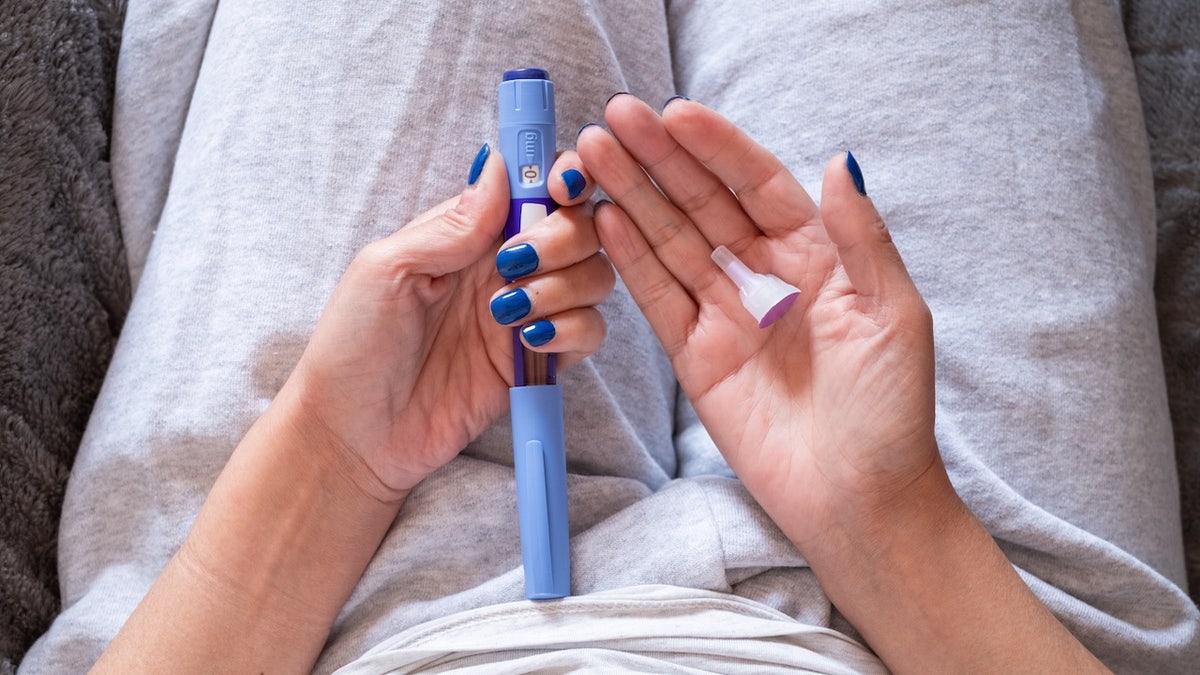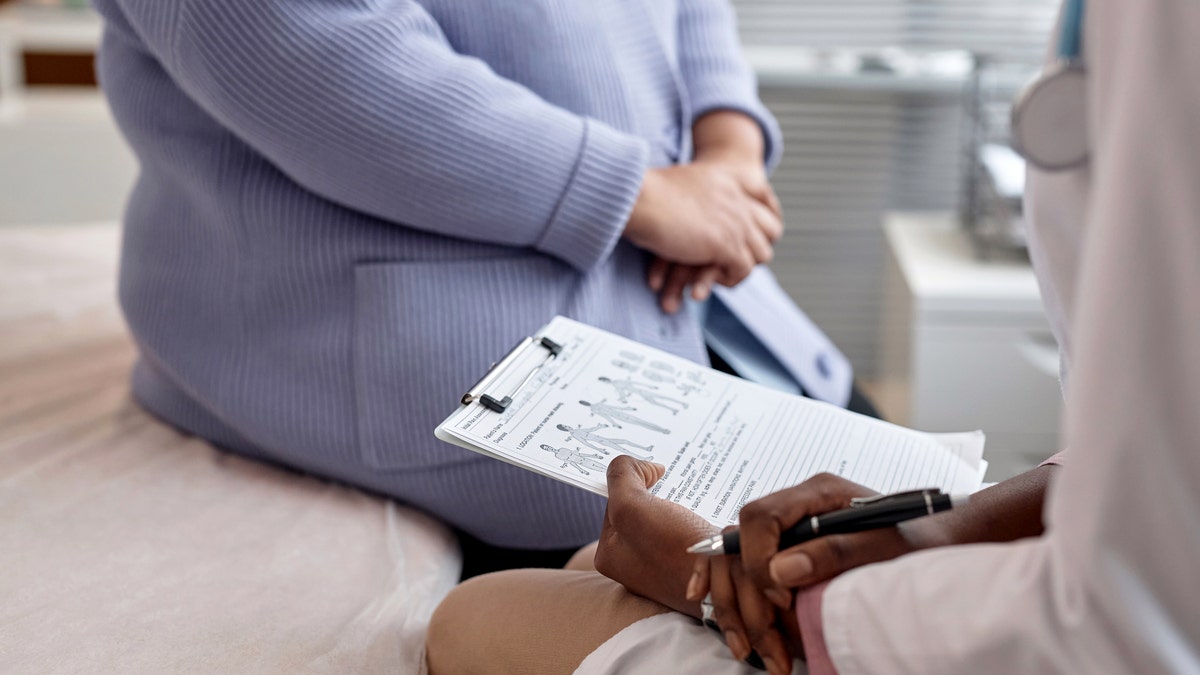Doctor says everyone should take GLP-1 drugs daily for optimal health

NEWYou can now listen to Fox News articles!
They may have gained popularity for diabetes and weight loss, but GLP-1 medications like Ozempic and Wegovy have been linked to ever-expanding health benefits.
In fact, some doctors — including Dr. Terry Dubrow, a plastic surgeon and TV personality based in Newport Beach, California — recommend that everyone takes a low daily dose, even if they don’t need to lose weight.
Dubrow spoke on camera with Fox News Digital about the benefits of “microdosing” these medications. (See the video at the top of this article.)
How GLP-1s work
GLP-1 receptor agonists work by mimicking a hormone called glucagon-like peptide-1, which is released from the gut after eating.
The drugs help to regulate blood sugar, slow down emptying of the stomach and diminish appetite, and have also been shown to reduce the risk of heart disease.

Dr. Terry Dubrow, a plastic surgeon and TV personality based in Newport Beach, California, recommends that everyone takes a low daily dose of a GLP-1, even if they don’t need to lose weight. (Terry Dubrow)
“Sugar’s the enemy, and these drugs affect sugar in your blood,” Dubrow told Fox News Digital. “They affect the way insulin reacts.”
GLP-1s help insulin move the glucose (sugar) out of the bloodstream and into the body’s cells, where it can be used for energy or stored, the doctor said. The drugs also help to prevent the inflammation and damage sugar can cause in the blood vessels, nerves and organs.
‘NEXT OZEMPIC’ AIMS TO DELIVER 30% WEIGHT LOSS WITH FEWER SIDE EFFECTS
“I don’t think anyone would argue that if there was a way to manipulate the amount of sugar and inflammation your body’s exposed to, that is something we want to lean into. And that’s exactly what these drugs do,” Dubrow added.
In addition to regulating blood sugar and triggering weight loss, GLP-1s have also been approved to reduce the risk of cardiovascular events and kidney disease in certain patients.
“I have never seen a drug in the history of medicine be on such a rapid path to approval.”
“Even if you’re not overweight, being on these GLP-1 drugs … helps to minimize and prevent a repeat recurrent heart attack,” Dubrow said.
Semaglutide was also recently approved for MASH (metabolic dysfunction-associated steatohepatitis), an inflammatory form of fatty liver disease.

Dubrow spoke on camera with Fox News Digital about the benefits of GLP-1 medications. (Fox News Digital)
GLP-1s are also being studied for potential cognitive benefits in Parkinson’s patients.
“I have never seen a drug in the history of medicine be on such a rapid path to approval,” Dubrow said.
The case for microdosing
Along with other experts, Dubrow is an advocate for microdosing, which is where people take low, steady doses of GLP-1s every day, even if they don’t need them for diabetes or obesity.
While patients with diabetes take doses that increase every four weeks, microdosing entails using a low-level dose that doesn’t go up.
WEIGHT LOSS TOUGHER WITH ULTRA-PROCESSED FOODS LURKING IN NEARLY EVERY MEAL, SAY EXPERTS
A younger population on TikTok has zeroed in on microdosing, Dubrow pointed out — and he thinks everyone should be doing it.
“I am obsessed with the concept of microdosing,” he said. “I think maybe half the starting dose for diabetes is the way to go — and you probably don’t need it every seven days, it’s probably every 10 days, just to sort of modulate the amount of sugar in the blood.”

“Even if you’re not overweight, being on these GLP-1 drugs … helps to minimize and prevent a repeat recurrent heart attack,” Dubrow said. (iStock)
The doctor noted that there are still a lot of unknowns with GLP-1 medications.
“We are just figuring out now how to use these drugs for different indications, for different reasons,” he said. “We’re learning as we’re using it.”
“I am obsessed with the concept of microdosing.”
As with other drugs, like Botox, Dubrow said there is a bit of “human experimentation” at play.
“We’re figuring it out, and we’re teaching the medical profession how to do it. The patients are telling us how to use these drugs.”
Potential risks
GLP-1 medications have been linked to several potential risks. The most prevalent is gastrointestinal issues, such as nausea and vomiting.
Others have reported an increased risk of pancreatitis, muscle loss and thyroid tumors.
“I read every study that comes out on these drugs, and I can tell you, it’s very clear they don’t cause pancreatitas,” Dubrow said.
OZEMPIC PUSH FOR SENIORS? SOME DOCTORS SAY MORE PEOPLE AGE 65 AND OVER SHOULD BE ON IT
“In fact, if you really look at the populations who have been using it, pancreatitis is less in those populations.”
Dubrow confirmed, however, that the drug has been linked to an increased risk of the very rare medullary cancer of the thyroid.

Those who experience severe side effects from GLP-1s should talk to a doctor, Dubrow advised. (iStock)
“If you have a family history of that, that’s a contraindication to you using these drugs,” he said.
Regarding the digestive side effects, the doctor said the medications do slow down the GI tract, but it’s been shown that the body adjusts to that over time.
“These particular drugs are natural hormones that occur in our small intestine, and you get used to the side effects. They go away.”
CLICK HERE TO GET THE FOX NEWS APP
The severity of side effects is linked to the dose amount, Dubrow noted.
“The low dose, particularly the microdose, really has a low propensity toward the constipation, the nausea, the potential diarrhea, the GERD (reflux),” he said. “I think those side effects are less significant for people who microdose.”
To counteract the risk of muscle loss, Dubrow recommends increasing protein intake and incorporating resistance training as a core component of an exercise routine.
Those who do experience severe side effects should talk to a doctor, he advised.

Off-label use of GLP-1s, such as for microdosing, is common, Dubrow said — “but finding a doctor willing to prescribe can be difficult.” (iStock)
Drugmakers weigh in
When contacted by Fox News Digital, manufacturers of GLP-1 medications warned against microdosing the products.
“Lilly does not have any data on the benefits or risks of microdosing of Zepbound and Mounjaro,” said a spokesperson for Eli Lilly, maker of the GLP-1 drugs Mounjaro and Zepbounda. “Both autoinjectors and Zepbound vials are approved for single-use only — dose-splitting or ‘microdosing’ is not contemplated by the FDA label. As such, off-label use of Zepbound and Mounjaro may pose patient safety risks.”
“Off-label use of Zepbound and Mounjaro may pose patient safety risks.”
Novo Nordisk, maker of Ozempic and Wegovy, said it does not condone “misuse” of its products.
“It’s important to understand that for Wegovy, only the marked doses on the single-use, fixed-dose pens (0.25, 0.5, 1.0, 1.7 and 2.4 mg) are approved for use and represent an authentic FDA-approved medicine,” a spokesperson told Fox News Digital. “The starting dose of Wegovy® is 0.25 mg once a week, and the dose will gradually increase every four weeks. Patients should work with their healthcare professional to select either 1.7 mg or 2.4 mg for the maintenance dose.”
CHEAP OZEMPIC KNOCK-OFFS HAVE RISEN IN POPULARITY
“It is also important to note that the authentic Wegovy injectable pen is designed as a single-use pen, the dose is already set, and should not be altered or tampered with, and the pen must be disposed after one use.”
“Ozempic is a multi-use pen with one pen and multiple needles,” the spokesperson added.
Accessing GLP-1s
Dubrow said he’s not concerned about supply issues amid the growing popularity of GLP-1s, as major drug companies have the resources to “scale up” to meet the demand.
Off-label use of GLP-1s, such as for microdosing, is common, Dubrow said — “but finding a doctor willing to prescribe can be difficult.”
CLICK HERE TO SIGN UP FOR OUR HEALTH NEWSLETTER
The doctor cautioned against buying these drugs from online marketplaces, which he referred to as the “wild wild west.”
“It’s hard to find these drugs online from compounding pharmacies, because essentially they’re going rogue — it’s illegal. They’re not allow to do it,” he warned.
“These drugs are natural hormones that occur in our small intestine, and you get used to the side effects.”
“So if you’re getting it from rogue pharmacies that aren’t allowed to do it or are willing to bend the rules, what is it? You don’t know what you’re getting.”
“It may be an adulterated, weird version that has side effects or that’s not effective.”
Looking ahead
There are several next-generation drugs in development that combine multiple hormone pathways, Dubrow said.
“I predict within five years, we’ll have a pill … designed to manipulate hunger and insulin resistance,” he predicted.
For more Health articles, visit www.foxnews.com/health
Overall, Dubrow said, GLP-1s are “here to stay.”
“They’re just going to get better, and we’re going to learn how to use them in a more appropriate and clinically effective way,” he said. “So fasten your seatbelt. If you’re not on them now, you will be later.”
